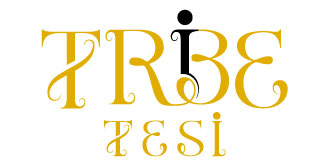Braiding my hair has always been more than just a hairstyling choice; it’s a meaningful connection to my culture and a practical way to maintain my hair’s health and manageability. This cultural practice has deep roots, symbolising strength, unity, and identity within the black community.
It’s an act of racism and discrimination when braided hairstyles are deemed unacceptable on television and in many workplaces and schools.
In the past, finding a hair salon that catered to the unique needs of black hair in the North East was a challenge. It often meant embarking on a journey from Newcastle to London to get my hair done, as there weren’t enough African beauty shops catering to the African community in the region.
However, over the years, I’ve witnessed a positive shift in the availability of such salons closer to home. It’s heartening to see that the region is now home to more hair salons or barber shop that understand and specialise in the care of black hair. What’s particularly noteworthy is that many of these salons are also owned by members of the black community, which fosters a sense of trust and authenticity in the services they provide.

The versatility of braiding hair is a testament to the richness of black culture. From intricate cornrows to elegant Senegalese twists, the artistry of braiding allows for a wide range of styles, each with its own unique significance and beauty. It’s a way for individuals to express themselves, celebrate their heritage, and it’s also a practical choice, as it helps protect and maintain the health of black hair, which often requires special care.
I believe it’s an act of racism and discrimination when braided hairstyles are deemed unacceptable on television and in many workplaces and schools – a reflection of the deeply ingrained biases in society. The negative stereotypes associated with braids and other Black hairstyles perpetuate harmful biases and create barriers for individuals who simply wanted to embrace their culture and express themselves through their hair.
Despite these challenges, the resilience of the Black community is leading to a shift in perceptions and attitudes towards braided hairstyles. The journey towards inclusivity and respect for diverse hairstyles is ongoing, but it’s a journey worth taking to ensure that everyone can proudly wear their hair in the way that best represents their identity and heritage.

Yesterday, dressed in my black jeans, black long-sleeved t-shirt, ivory leather loafers and the African mud cloth kimono that was gifted to me by my friend Faty Kane of Tarunah, I headed to my hair appointment with the The Pink Shop Unisex Salon in Byker. This place has been more than just a place to get my hair done; it’s a sanctuary where I’ve built enduring relationships, with conversations that bring so much laughter with my long-term hairdressers Maria, Sophie and Mamie – the beauty therapist.
What a delightful experience! When I’m all good to go, it’s not only about leaving the salon with beautiful braids; it’s about feeling connected to my Black roots and empowered by my new and unique cultural look.


4 Comments
Great look and blog. I really enjoy your writing Salha!
Thank you and for taking the time to read the blog.
Yesoooooo Black is king and queen and so is our hair. That in itself is the reason for all the hate, racism and discrimination that we face. You can’t change what God has given to his people.
If it’s not hair, it will always be something else – but I love the love you are giving to yourself.